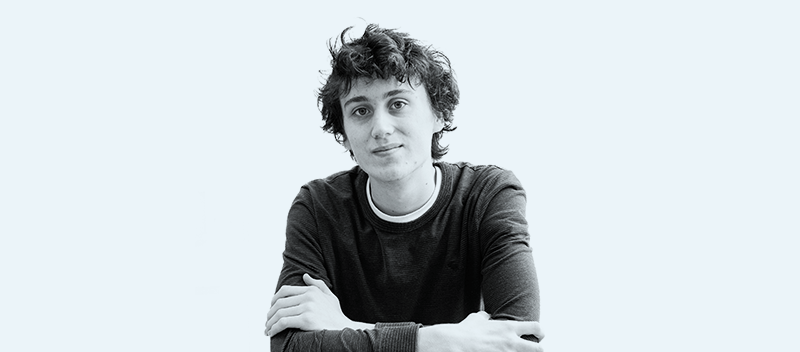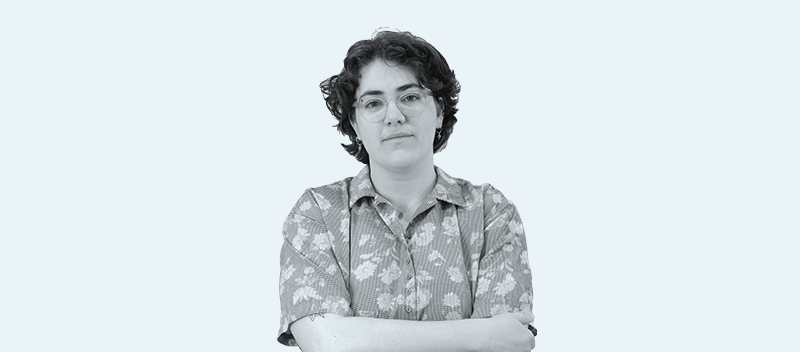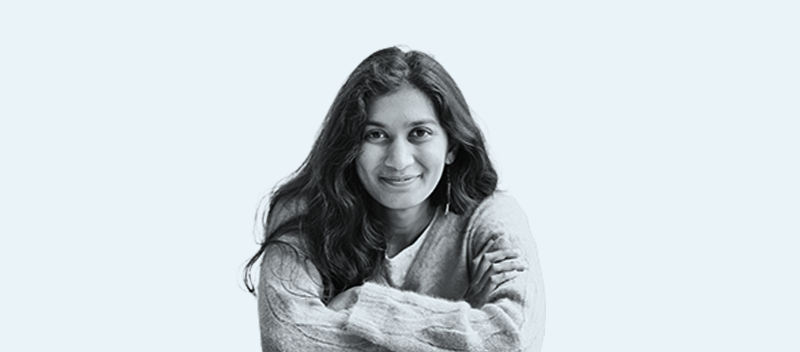The Rabobank is to launch a function to estimate your CO2 footprint based on your expenditures after the summer. The option, called Carbon Insights, is voluntary and can be switched on or off. And although it may not be altogether accurate, I think it is extremely useful to get a better view of my climate impact in this way. I miss data that make the impact of different choices visible.
A brief look around me shows that our generation is already well on its way to a more climate-conscious lifestyle. We consume less meat, travel less by plane, and buy fewer items. Great, of course, but eco-guilt sometimes thwarts my plans for the future. I would like to launch a small food business, such as a restaurant or shop. But doing so in a sustainable way is extremely difficult. I would prefer to make all my products available to the less wealthy, but running a green business is far from cheap. Moreover, I would procure ingredients from small producers, but small-scale production uses more energy than production in bulk.
I miss data that make the impact of different choices visible.
Sometimes, doing nothing at all seems the best way forward: buy as little as possible, and stop travelling entirely. But that isn’t really a viable option. Moreover, everyone has some eco-guilty pleasures. Mine are taking baths and visiting the sauna.
And precisely that is why I want to use the energy I invest in a greener lifestyle as efficiently as possible. This means I want to know what the best choices are. The fact that there is no unit to describe sustainability makes it all the more confusing. You can consider CO2 emission, water consumption and energy use. But how do you know the weight each type of emission carries in an equation?
Moreover, everyone has some eco-guilty pleasures. Mine are taking baths and visiting the sauna
I would welcome a smartwatch that indicates in real-time what the impact is of your actions. I would call it the Smartwhats-the-impact. This device would finally enable you to make smart choices. Is it more sustainable to order sustainable bedlinen from England or buy a less sustainable set that you can pick up from a nearby store by bike? And is saving the two potatoes left over from yesterday’s meal worthwhile if it means having to use the oven again today? Check your Smartwhats for insight into which option is greenest.
Als ik zo’n beetje om me heen kijk, is onze generatie ontzettend goed bezig klimaatbewuster te leven. We eten minder vlees, reizen minder met het vliegtuig en kopen minder spullen. Supergoed natuurlijk, maar soms zit het eco-guilt mijn toekomstplannen in de weg. Ik zou graag een eigen bedrijfje beginnen in de foodwereld, zoals een restaurantje of een eigen winkeltje, maar het is ontzettend lastig om dit duurzaam op te zetten. Zo zou ik het liefst al mijn producten ook voor jonge en minder kapitaalkrachtige mensen beschikbaar maken, maar alles groen willen doen werkt nu eenmaal door in de prijs. Ook wil ik ingrediënten halen bij kleine producenten, maar kleinschalige productie kost een stuk meer energie dan grotere batches.
Although this dream device may not yet be feasible, the Rabobank took a step in the right direction. Dutch people who have a better understanding of their emissions after the summer, the Rabobank is to blame!
Oscar Delissen is a fourth-year student of Food Technology.




